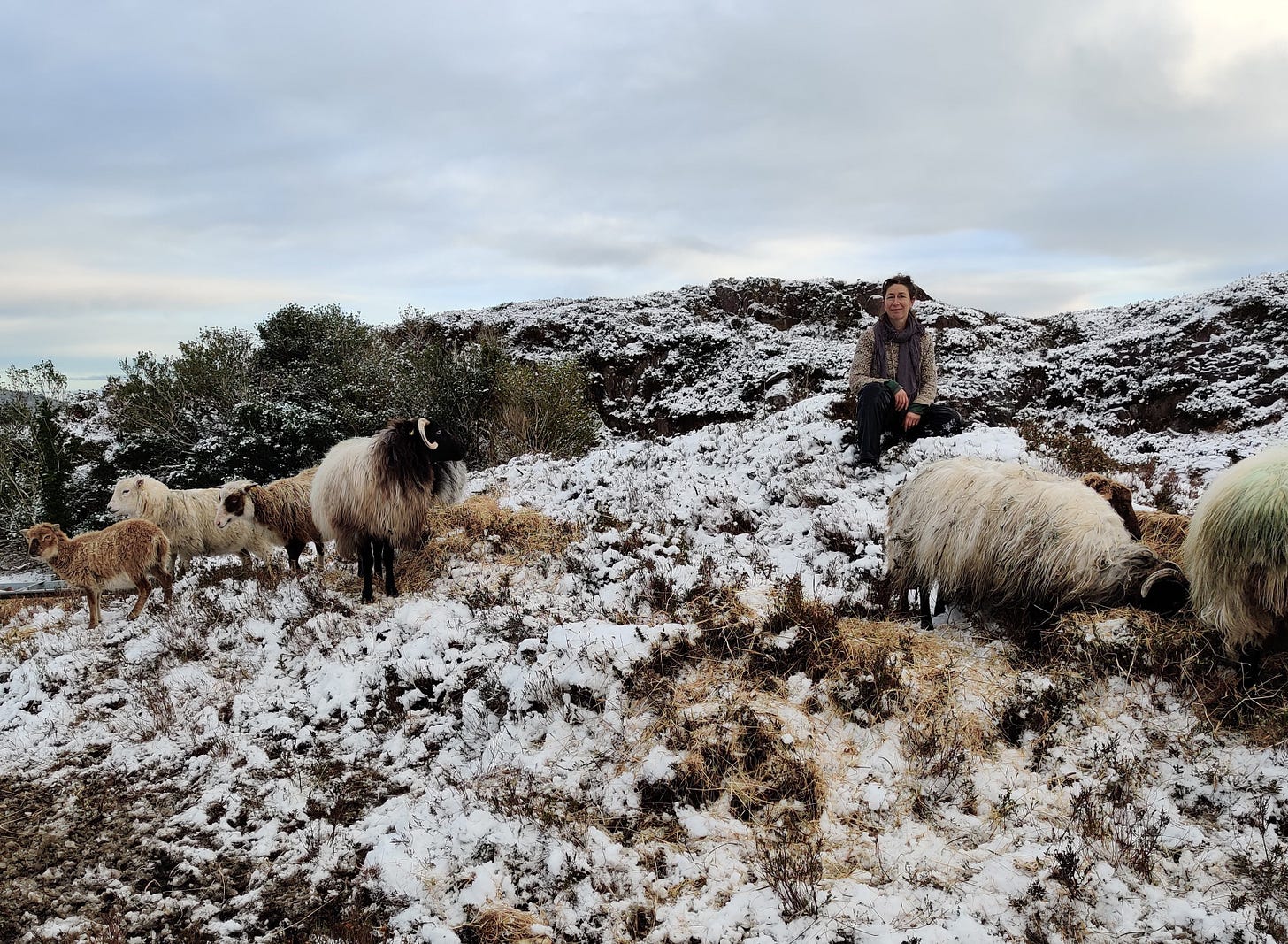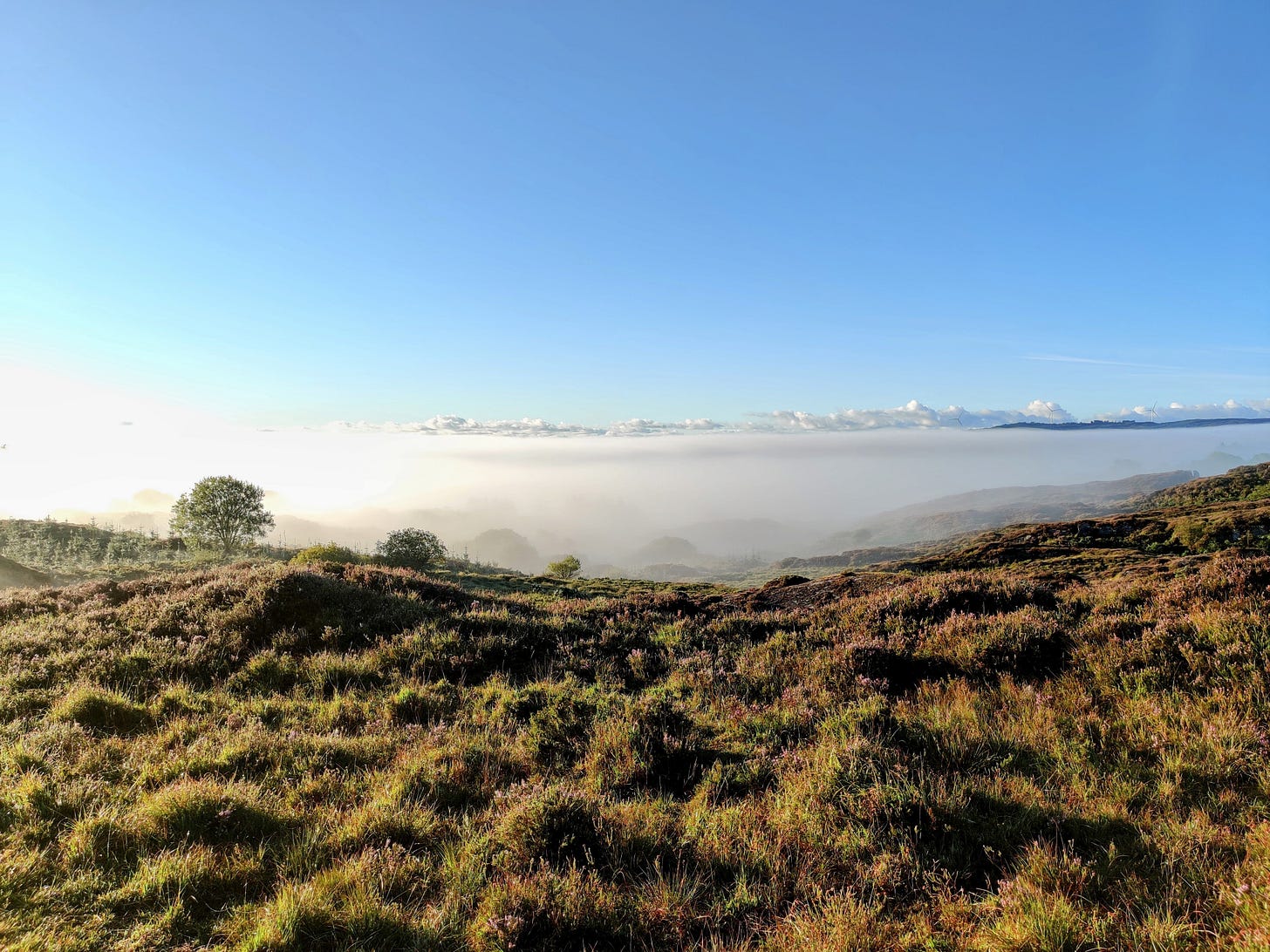Well we made it through winter, if a little tattered and torn. I am late writing this, winter was tough on me physically and on us as a team, and led into a period of deep soul searching. I have had to reevaluate my capabilities, physical and financial. Lately, I have felt stalled by an overwhelm of having to make some enormous decisions on the direction of my life and work in a time of enormous uncertainty. And I know I’m not the only one.
We live in interesting times. A time of seismic change, unprecedented transfer of wealth and crumbling systems of old. In case anyone hasn’t noticed, farmers are struggling. Caught between a rock and a hard place with rising input costs and unworkable margins, coupled with corporate land grabbing, farmers are, quite literally, being pushed off the land.
And I smell revolution stirring from the dark, fertile soils of decay like the buds of spring, a new story unfurling from the ruin.
I really love Charles Eisenstein’s writing on the crises—and opportunities—facing us and I am currently chowing my way through his brilliant, paradigm shifting book, Sacred Economics, Money, Gift & Society in the Age of Transition, from which I quote*:
“The story that is ending in our time… is a story of endless growth, and the money system we have today is an embodiment of that story, enabling and propelling the conversion of the natural realm into the human realm. It began millennia ago, when humans first tamed fire and made tools; it accelerated when we applied those tools to the domestication of animals and plants and began to conquer the wild, to make the world ours. It reached its glorious zenith in the age of the Machine, when we created a wholly artificial world, harnessing all the forces of nature and imagining ourselves to be its lords and possessors. And now, that story is drawing to a close as the inexorable realization dawns that the story is not true.”
And here’s the deal—we get to write the next story!
Eisenstein goes on to describe how we might write a new story of humanity, “one of cocreative partnership with earth” and building a “ more beautiful world our hearts know is possible”. One built on the human nature of giving, and a “more connected, ecological and sustainable way of being”.
We have a little gift exchange thing going on with one of our butchers. It started with my husband giving him a welding mask early on in “the pandemic”, around about the time we were issued a mask mandate and I’m still not sure if it was really needed for welding or intended as some kind of comical, industrial style, superduper virus shield (as it happens, our butcher had a mask exemption and wore a visor behind the counter, so it could work… but, I digress), either way, we were generously repaid with very much beef liver and all sorts of yummy offaly things out of The Bucket. Latest, he has given us a set of butcher’s knives. It’s our turn to come up with a suitably valued gift in return.
Talking with another friend just the other day who lives off-grid in a stream-fed and solar powered shipping container, and knows all sorts of clever off-grid things that we have been struggling to wrap our brains around, about how to set up solar pump systems and such, it struck home to me just how needed these alternative forms of trade are when he spoke about offering his time and knowledge on a skillshare basis, because “we all need to keep our money”. We came away from the conversation wondering what we could offer him instead of money in exchange for his service. A box of hill raised Shetland lamb? A beautiful handcrafted willow bark tanned sheepskin? A number of hours of skill or labour?
It doesn’t matter, my point here is that taking money out of the equation made a fundamental shift in our thinking from “what can I sell?” to “what can I offer?”
Feel the difference.
I am not advocating for a money-less society. Far from it. Keep hard cash in circulation, I say. We all need to make a living and both cash and digital currencies are very effective means of trade, but the rising monetary cost of living is unsustainable—I’m sure that, bar those who fly around to climate conferences in private jets, we are all feeling the pinch—the wealth gap is alarming, and our current financial system is at a pivotal point of change.
And again, we get to write the new story. So what if we could make it Our Story? What if we could take this opportunity to take back our sovereignty, our communities, and our wealth?
I talk a lot about making a livelihood on the land. To be clear, I am talking about basic sustenance—not profit (there is no profit in small-scale farming, it is a labour of love that is getting harder and harder to get by in, nobody’s in it to get rich). I am sufficiency farming (I have intentionally left out “self-” because self-sufficiency is a myth) on a small patch of very poor marginal (unprofitable) land, the aim being simply to feed us from the land we live on, with enough surplus produce to trade into our local community to help offset some of the costs of running the farm while, ultimately, restoring the land. I have to sell/trade things to buy the things I need but cannot produce, but for me, it’s not about how much money I can make (not a lot), it’s about living in a way that feels nourishing and real and connected—to the land, my community, and my place as human in the Great Web of Life.
There is a saying that if you find a job you love, you’ll never have to work a day in your life. It’s bullshit because it implies that hard work is something to be avoided in the pursuit of happiness or success, a luxury of the privileged few that breeds a culture of laziness and dissatisfaction, when the truth is that when you find a job you love you’ll work ten times as hard for a tenth of the pay because real life satisfaction doesn’t come from a paycheque, but from having purpose, from giving and belonging.
Perhaps it’s just my working class roots talking, but I don't want it easy. I'll take the deep, exhausted gratification that only comes from hard physical graft, the satisfaction of a job well done, and the sense of belonging from knowing that I am part of something so much greater than myself.
Looking around at our wider communities, grassroots movements like the People’s Food & Farming Alliance and the Landworker’s Alliance in the UK, the Agrarian Trust in the US, and international organisations such as Local Futures and A Growing Culture, are gaining traction and leading the way into new, more equitable, decentralised, de-monopolised, community based systems of land tenureship, food production and trade. Revolution begins in the soil, it spreads like grassroots through mycelial networks and blooms from the fecund litter of the old. And more and more of us, it seems, are choosing, deliberately, to leave the crumbling rot of the old story and feel our own way to, I believe, a more wholesome and connected way of life.
I feel it as a strong pull away from faceless, centralised systems of top-down authority and into a more embodied system of personal connection and responsibility. My focus lately is less online and more on making real, local, hand to hand connections—which has been desperately lacking for so many over the past few years. And I feel it as a return to nature, not just the old cliche of back to the land, but to the true nature of ourselves as caretakers and custodians, artists and innovators, shepherds and farmers, recognising our place as part of, not separate from, the natural world.
They say people come home to the garden. That a deep sense of belonging is found with hands in the soil, as though the earth is truly what we are made of and where we belong, and I read somewhere once that to gaze across an open landscape, upon distant horizons, evokes a deep ancestral memory that feels like home. I know that feeling. It sinks me to my knees and draws me down into the earth and rises from my belly and swells up until my heart could burst through my throat and tears squeeze from the corners of my eyes and reminds me that I am nothing but clay, only recycled birch leaves and raindrops and butterfly wings and I belong here, as intrinsic as the blackbird and the oak. The rest is superfluous, just the necessities of making a living in a world, yet crumbling, that has grown so far detached from what is real and tangible and true.
To live for the changing of the seasons. The way the light shifts across the landscape and the colours that bloom and fade and decay and the beauty in it all. The impermanence, the interconnectedness, the belonging.
That’s what farming is.
And so we trundle on…living the dream.
*Eisenstein generously publishes under a Creative Commons licence that allows free, non-commercial sharing of his work.





beautiful
Such a powerful post. It will take me a few days reread and to wholly digest it. We truly are at a cross roads, at a reset point of redefining what living a successful life looks like, and it has little to do with how much is in our bank accounts. I too am looking to reassess. I have been a Shepherd for 20 years and am now looking at whether physically and financially I can do as I have been doing. I struggle with finding local connections. But the ones I have are precious. I also trade when I can. I trade socks I produce from my wool for whole chickens raised by a local Amish farmer. I also get raw milk and other meats from him that he raises and butchers on his farm. It has been an honor to be friends with he and his wife and children. He feels nourishing his community a sacred mission. I seek other such connections. Those that respect the land and understand the importance and reward of skills and hard work. I look forward to your posts on how you are getting on and where your unique journey leads you next as I am digesting my journey thus far and where assessing that will lead me next. Blessings to you.